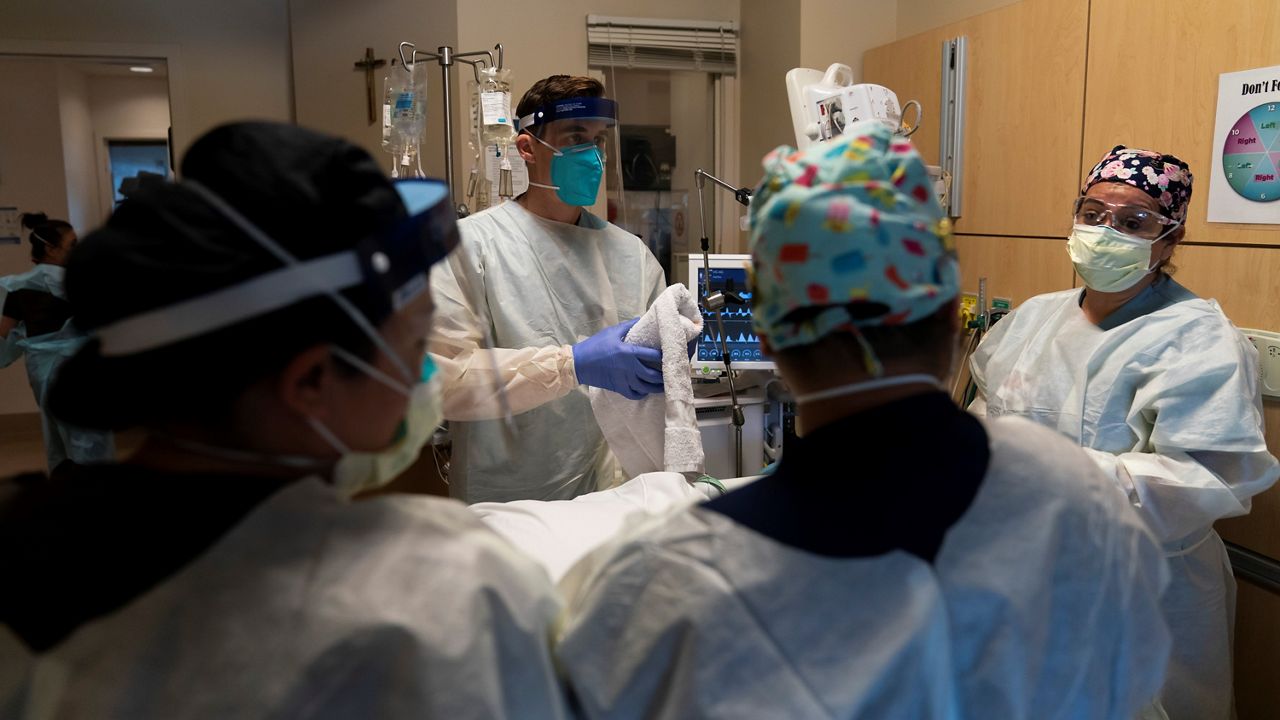TEXAS — Unvaccinated Texans are 20 times more likely to die from COVID-19 than their fully vaccinated counterparts and 13 times more likely to contract the virus.
That’s according to a new study released Monday by the Texas Department of State Health Services.
The study analyzed data between Sept. 4 and Oct. 1, allowing the surging delta variant to be factored in.
Overall, according to DSHS, the study concludes that the vaccines create strong protection for all age groups. However, researchers said the vaccines’ effects are most pronounced in younger age groups. The risk of death among unvaccinated people in their 30s was 48 times higher than for the fully vaccinated and 63 times higher for people in their 40s.
During the four-week time period studied, there were 339 deaths among unvaccinated people aged 18 to 29. Among the fully vaccinated in this age range there were just 10 deaths.
The period studied came before the authorization of Pfizer’s vaccine for children between the ages of 5 and 11.
The study was conducted by matching electronic lab reports with death certificates and immunization records.
“This analysis quantifies what we’ve known for months,” said Chief State Epidemiologist Jennifer Shuford, MD. “The COVID-19 vaccines are doing an excellent job of protecting people from getting sick and from dying from COVID-19. Vaccination remains the best way to keep yourself and the people close to you safe from this deadly disease.”
The study is available in its entirety here.



